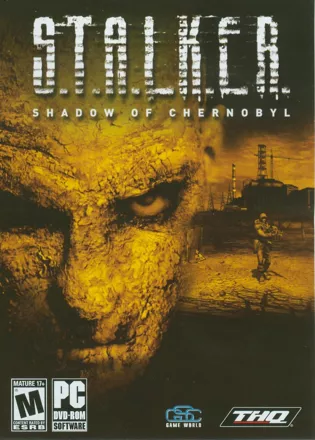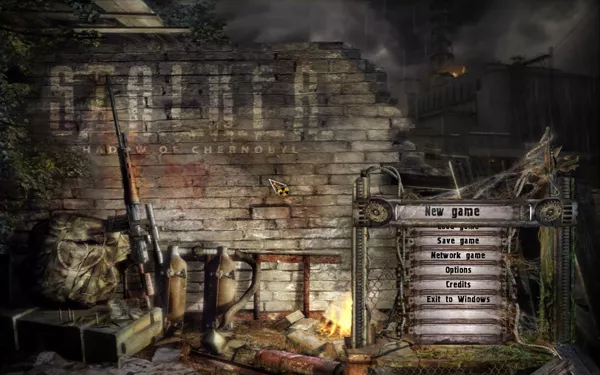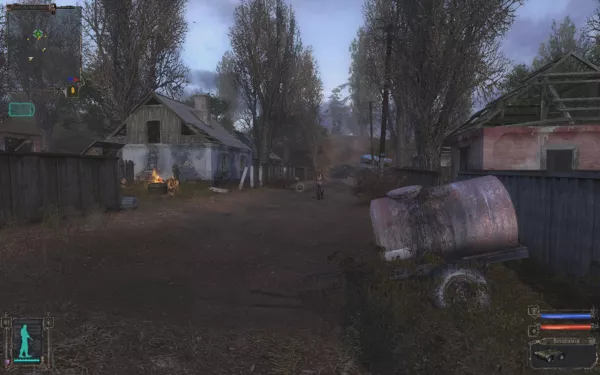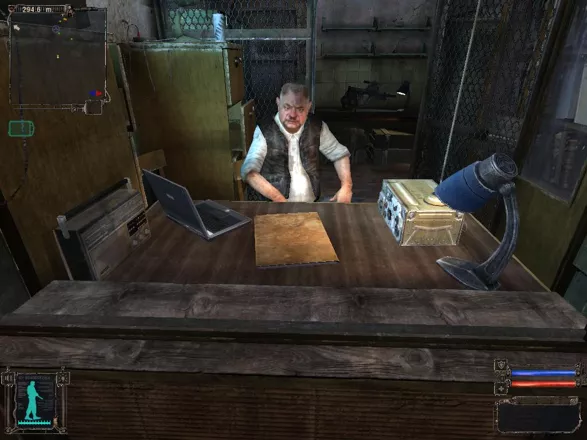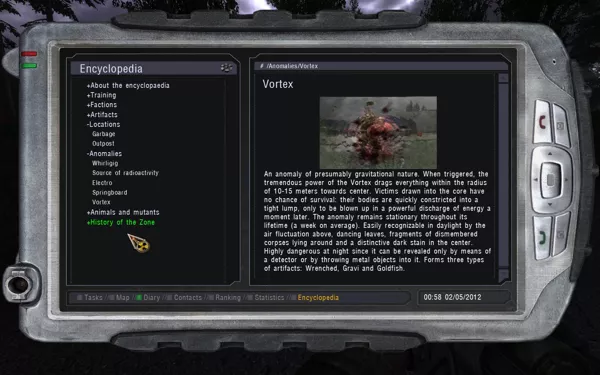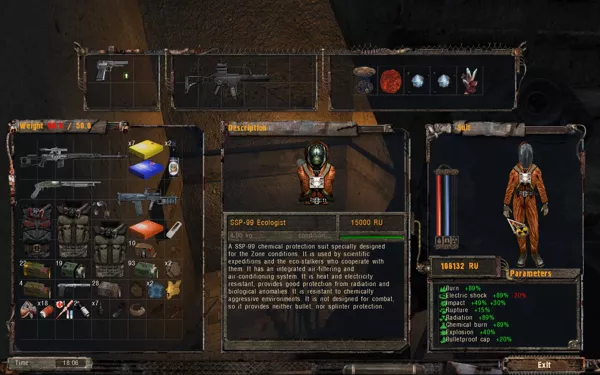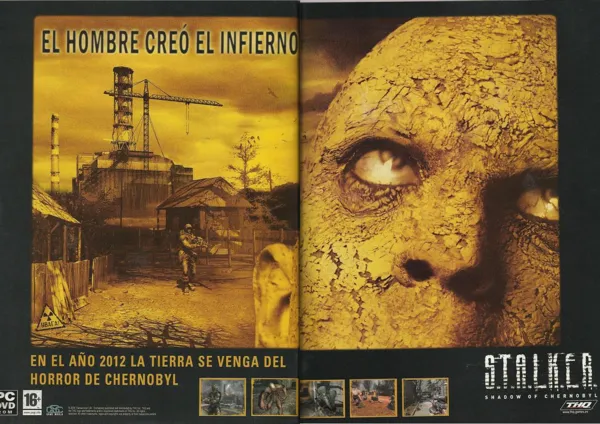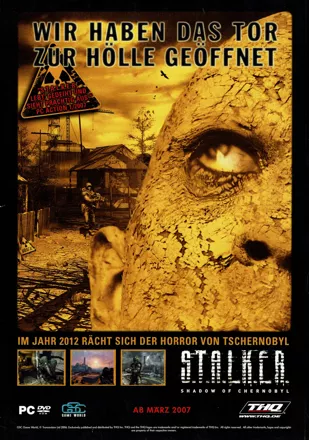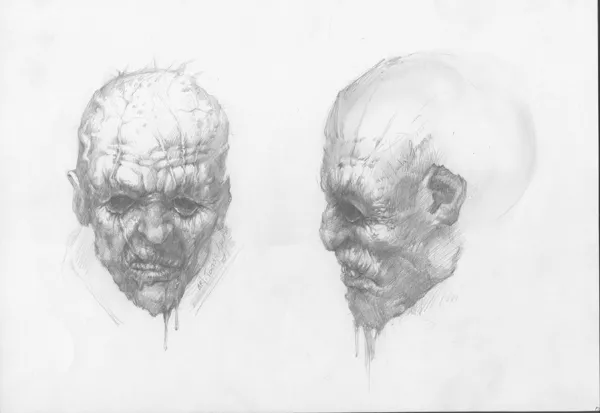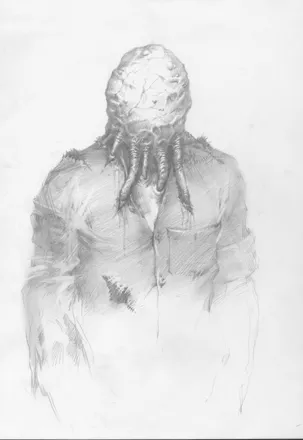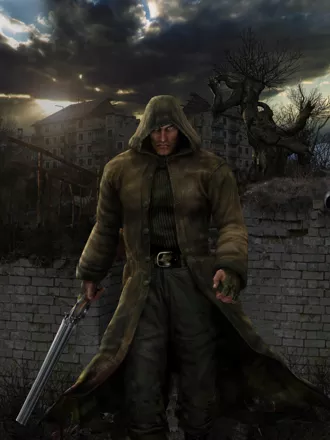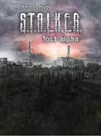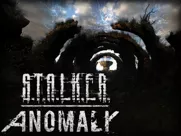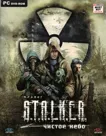S.T.A.L.K.E.R.: Shadow of Chernobyl
Description official descriptions
The Ukrainian town of Chernobyl was the site of a severe nuclear accident in 1986. In an alternate timeline, following attempts to repopulate the area, another unexpected accident occurred twenty years later. By the year 2012 the area, which was dubbed "Zone", has become hazardous with mutated animals, bandits, and mysterious anomalies. These anomalies differ in their effects, but they all have one thing in common - they are deadly. Despite that, the Zone attracts scientists, explorers and scavengers (known as "stalkers") hunting for valuable artifacts. Military organizations have been formed, fighting for dominance in the Zone.
The player controls a stalker who has lost his memory in an accident. After being rescued by another stalker, he discovers himself in a village located on the outskirts of the Zone, with only a single clue: he has a note in his PDA telling him to kill an unknown person with the nickname "Strelok".
S.T.A.L.K.E.R.: Shadow of Chernobyl is inspired by the science fiction novel Picnic on the Roadside (1977) by the Soviet Russian authors, the brothers Arkadi and Boris Strugatsky. The game is an open-ended first-person shooter featuring a thirty square kilometer playing area which the player is free to explore. There are also many characters the protagonist can communicate with; in this sense the game has similarities to RPGs, although there are no attributes or skills to improve. The protagonist may also develop relations with NPCs. Helping a faction will boost his reputation with it, which may result in better items for purchase or information, while attacking a member of said faction will ruin his reputation and prompt other members to attack him. Along with the main quest, the player can also complete side quests, some of which have time limits.
The player has to carefully manage the protagonist's inventory, not only because there is a carrying capacity, but also because weapons and armor degrade as they are used. The player can also use artifacts, which can be usually found near anomalies, to his benefit. Artifacts offer different kinds of bonuses, but often have negative side effects: for instance, an artifact could improve the hero's bullet resistance but also increase his radiation level.
The game features ragdoll physics, destructible surroundings, HDR lightning, dynamic weather, day and night cycles, and multiplayer for up to 32 players.
Spellings
- 迷失地带 - Simplified Chinese spelling
Groups +
- 3D Engine: X-Ray
- Covermount: Level (Romania)
- Gameplay feature: Arena fighting
- Gameplay feature: Armor / weapon deterioration
- Gameplay feature: Burden / Encumbrance
- Gameplay feature: Hunger / Thirst
- Gameplay feature: Multiple endings
- Gameplay feature: Radiation / radioactive poisoning
- Games referenced in movies
- Green Pepper releases
- Inspiration: Author - Arkadi and Boris Strugatsky
- Inspiration: Literature
- Physics Engine: Open Dynamics Engine (ODE)
- S.T.A.L.K.E.R. series
- Scripting language: Lua
- Setting: 2010s
- Setting: Chernobyl Exclusion Zone
- Setting: Country - Ukraine
- Setting: Future now past
Screenshots
Promos
Videos
Add Trailer or Gameplay Video +1 point
See any errors or missing info for this game?
You can submit a correction, contribute trivia, add to a game group, add a related site or alternate title.
Credits (Windows version)
237 People (193 developers, 44 thanks) · View all
| Producer |
|
| Project Lead | |
| Lead Designer |
|
| Lead Programmer | |
| Level Design (Art Department) |
|
| Animation (Art Department) | |
| Character models (Art Department) |
|
| [ full credits ] | |
Reviews
Critics
Average score: 81% (based on 57 ratings)
Players
Average score: 4.0 out of 5 (based on 118 ratings with 6 reviews)
The Good
The Graphics: Not spectacular, but the art design stands out and they work hand in hand with other elements to create a visually appealing and surreal setting in the zone.
Sound: The sound will immerse you into the bizarre surroundings of the zone, and will even sometimes go farther than any of the horrific mutants in creating a genuine atmosphere and feel of terror. The strange sounds emanating throughout the zone along with the stark uninviting and harsh wind is guaranteed to keep you on your toes.
Combat: The combat is great, realistic and very involving. It can be tough, but it only helps immerse you further due to the realism and genuine feeling that you have to take care of yourself and survive, using any method possible be it a bigger gun or patching yourself up before the battle.
The Game World: The game world is easily the best part, The Zone is a well defined and scary place, and is wide open for exploration... at your own risk. The game sucked me in more than any other "sandbox" type game, as the complex system of the zone is so well balanced and unique. You will have the desire to explore, but the dangers of the Zone will keep you on edge too.
"Hybrid" gameplay:
Is it a first person shooter with RPG elements? Is it an RPG with guns? It's hard to say. To me, it feels like a cross between a lite-RPG, a military simulator, a horror game, an adventure game, and of course a shooter. This hybrid of gameplay blends seamlessly with the equally unique system of the zone, you will make a name for yourself, affect the world, and truly feel like you are trying to survive from crazed militants and frightening mutants and the deadly "anomalies" that are strewn across the zone.
The Bad
Mediocre Voice Acting: No one really seems to put any effort into their roles, and just grunts out lines. It's also inconsistent, important characters will speak English but others will speak Russian, and sometimes a glitch will cause them to just revert to Russian which can be confusing for someone like me who doesn't speak Russian.
Bugs, Bugs, and More Bugs: The engine needs some serious retooling. There are too many glitches to note, the list I attempted to compile consisted of over 300 giant bugs... and this is after several patches. It also has a strangely steep system requirement due to poor threading of the engine. It's also a bummer to have an intense fight crash on you.
Difficulty: STALKER's difficulty can be daunting at first. I almost wanted to hate the game because I had to do the first mission 20 times on the "Rookie" setting. There is almost no tutorial and you are thrust into the game rather jarringly, so you have to learn the game through lots and LOTS of trial. If you have patience, you will soon adapt to the difficulty and you will adapt to the zone, but the initial difficulty can make the game have a slow and sometimes frustrating start.
Disappointing story: The story had lots of ideas going for it, but it never really went anywhere. It doesn't help that the character you play as has no characteristics at all. The endings are also a disappointment. There are moments that the story is interesting, but usually those moments relate more to new areas of the zone and events in the zone, and less about the characters story. I also felt let down as, while I know this is not a direct adaptation of "The Roadside Picnic" or the film "Stalker," I feel like it could have used the more philosophical elements of those stories to greater effect.
Graphics are as bad as they are good: Like I said, STALKER looks good from the artistic standpoint, and looks very surreal and neat, but when you look at the game from the technical standpoint, its not impressive at all. Animations are stiff, facial expressions sort of jerk around unblinkingly, lighting is slightly off, and some textures are just very low resolution and sometimes jaggy.
The Bottom Line
Stalker is a game that is impossible to describe. The best way to describe it is if you have played the game "Deus Ex;" Imagine Deus Ex, but with a more realistic weapons system, a sandbox world, and mutants. It's similar to that, but even then, it defies categorization. Stalker is one of the most unique games in years, if not ever. It's hard to explain, it's hard to even understand, but it will suck you in and compel you to play through many times over.
If you are open minded, and want a change of pace from other shooters, STALKER will bring you that change and despite its problems, the amazing and memorizing game world will win you over and make up for almost all of the flaws (Except maybe the constant crashes, which usually happen during the best parts). Check out this game if you have not already!
Windows · by Kaddy B. (777) · 2009
The best game ever made, S.T.A.L.K.E.R. sets a new standard in the genre.
The Good
While most first-person shooter games always make promises of realism and immersion, none of them -- not even Half-Life and Deus Ex -- even come close to accurately simulating real life. Of course, this is largely because developers are afraid that making a game "too realistic" will suck the fun out of it. But if developers like GSC Game World can take the time to make it as realistic and fun as possible, squeezing in the details that you'll find in real life, they'll actually end up with an unbelievably great game like S.T.A.L.K.E.R.: Shadow of Chernobyl.
S.T.A.L.K.E.R. is an open-ended game, which means that instead of a linear gameworld where you follow the same path every time, you can freely roam around the gameworld and accept missions from other people that you find. Most of these missions are completely optional. This freedom, coupled with the fact that everything happens in real-time, ensures unparalleled replay value. Further adding to the immersion is the really intense nature of the combat. Since your weapons are inaccurate to start out with, and you don't take much damage before dying, you need to use tactics and stealth to survive against your extremely cunning AI opponents. Whether you're fighting mutant or human enemies, these guys use cover and tactics more efficiently than anyone can ever dream of. They also act differently depending on various attributes, like how hungry they are or even the weather outside! You really feel like you're in an actual gunfight. Heck, you could avoid combat altogether by using stealth tactics to sneak past your enemies...it's all up to you.
Attention to detail is very characteristic of S.T.A.L.K.E.R. A first in the shooter genre is the inclusion of food and sleep. Just like in real life, you'll need to eat food to stay alive, and get sleep in a safe resting spot. Dynamic weather and real-time alternation between day and night settings also help to fool you into thinking that you're truly in the game's alternate reality. S.T.A.L.K.E.R. also corrects the cliché of having to walk over items to pick them up. You press the Use key on items to add them to your inventory, and when you loot a corpse, you're presented with a menu so you can choose which items you want to loot. You're also limited to how much you can carry, and heavier items take up more space in your inventory. While this has been attempted in previous games, players would be frustrated when they had to pick up items in the heat of battle. This isn't an issue here, as you only have to pick up items when you're not in combat.
Just when you thought that S.T.A.L.K.E.R. couldn't get any more immersive, it presents you with photo-realistic graphics using GSC's own X-Ray engine. While the engine doesn't really have any graphical features that we haven't seen before, it more than makes up for this by having the best detail and lighting that you will ever see in any game. As expected, the great graphics come at a cost: even on my high-end PC, the game ran pretty slow unless I toned it down to minimum settings. If you have the rig to play it with the settings turned up, though, you'll constantly be amazed at how lifelike these graphics are. The audio is also spot-on. The weapons sound almost exactly like in real life, adding even more flavor to the combat. Since most of the characters are Ukrainian, they speak in actual Ukrainian accents, which adds to the authenticity of the game. Some characters just speak Ukrainian, so you'll see subtitles to be able to understand what they're saying.
The Bad
You're kidding me, right? This game rocks!
The Bottom Line
Mixing the best elements from games like Half-Life and Deus Ex with brand-new innovations, S.T.A.L.K.E.R. sets a new standard for future games to follow. Forget all those games that guide you along the same path each time. Forget all those games with rough level transitions. Forget all those games where you can snipe with a chaingun. Forget all those games where you don't eat or sleep. S.T.A.L.K.E.R. will become the new obsession of gamers everywhere, and will do to the gaming world what The Wizard of Oz did to movies. My suggestion is to finish every game that you haven't beaten yet, as S.T.A.L.K.E.R. will truly make all your other games lose their luster...
Windows · by Spartan_234 (424) · 2007
Flawed as a genre hybrid; great as an experience
The Good
The recent releases of Pathologic and The Witcher proved that some developers from Eastern Europe had enough creative power to be able to compete with their colleagues from the West. S.T.A.L.K.E.R. is yet another proof of this rise from beyond the former Iron Curtain.
There is really a lot to like about S.T.A.L.K.E.R.; the moment you fire up the game you feel that you are invited to something special. The "Fallout meets Oblivion" idea is certainly one that can make a dedicated gamer drool. Even though S.T.A.L.K.E.R. is far from being a true hybrid of those two games, it certainly takes steps in the right direction.
The first thing you notice when you being to play the game is the exceptionally strong personality of its world. S.T.A.L.K.E.R. is particularly atmospheric and has great graphics; but the unique effect is achieved mostly by following a certain style in the world design, which is instantly recognizable and is one of the game's most valuable assets.
The game's world immediately betrays the post-Soviet origin of S.T.A.L.K.E.R.; in fact, it is one of the few games I've ever played that uses absolutely authentic Soviet style. The rusty vehicles, the architecture of the buildings, many objects, even the nature itself - everything reminded me of Soviet Union, where I was born and spent the first ten years of my life. Certain things evoked a strange kind of nostalgia in me. I remember an abandoned train in the Garbage area. It looks exactly like the trains that were used for suburban railways in Soviet Union (and are still used in ex-Soviet countries, at least in some of them). This nearly photorealistic representation of a rarely used style is attractive in a bizarre way.
Those Soviet reminiscences are mixed with sci-fi elements: radioactivity everywhere, weird "anomalies", mutants, etc., resulting in a decidedly original and quite unforgettable style. S.T.A.L.K.E.R. is therefore one of those games you'd want to play just in order to feel its unique vibe.
Even if S.T.A.L.K.E.R. were an ordinary FPS, it would be interesting to play because of this setting. But the game tries to expand the boundaries of the genre - not always in a convincing way, but still with plenty of efficient results.
S.T.A.L.K.E.R. is in a certain sense the antipodes of Half-Life: the latter is linear and scripted, while the former doesn't have any setpieces at all and is also remarkably open-ended for a shooter. In this sense, S.T.A.L.K.E.R. surpasses Deus Ex, the ultimate FPS-RPG hybrid. Deus Ex had more role-playing elements than the Ukrainian work, and they were more coherent and better implemented; but its story progression was linear, just like in any other FPS. The fact you could switch sides and find different ways within a level didn't change the overall necessity to do the levels in a pre-established succession.
S.T.A.L.K.E.R., on the other hand, allows you to do whatever you want and generally go wherever you want. Its game world is seamless, not level-based, just like in an open-ended RPG. You can just walk around and explore the game world for hours, without undertaking any missions. You can do main storyline missions in different order. You can ignore them and do some side missions first. In fact, even the story missions are structured in such a way that some of them are not required to finish the game. Even though the "Kill Strelok" mission is your "main quest", it can be easily disintegrated during the gameplay; you can even ignore it entirely and still be able to complete the game! Of course, the "true" ending can be reached only if you pursue this mission, and without doing it, the story of the game won't make much sense; but it's up to the player to decide how to handle this.
This freedom, coupled with an interesting, unusual world to explore, is easily the game's chief appeal. S.T.A.L.K.E.R. is a game in which exploration is more important than following a story. Of course, this story does exist, and is in fact quite good if you bother to uncover it: there is even a very cool plot twist in the middle, and the final confrontation is fittingly majestic and is very heavy on story development. But, much like Elder Scrolls games, the meaning of gameplay here is "bathing" in the atmosphere, walking around, doing stuff on your own, being drawn into the game world and forgetting the reality around you.
There are plenty of other cool things in S.T.A.L.K.E.R.. There is a full day and night cycle, just like in RPGs. The many NPCs who populate the Zone belong to different groups that constantly fight each other. It is possible for the player to join two of those groups, the ones that have a distinct ethical idea behind their actions. It is theoretically possible just to kill everyone, except the very few givers of pivotal missions that will allow the player to access new areas. There is a huge amount of missions - I could only wish their quality would match their quantity. There are real hunger and stamina parameters; you can't run forever, like in most other games, and you'll also need to eat from time to time. There are artifacts you can hunt for, scattered around the game world, usually near dangerous places called "anomalies", some of which can instantly kill you if you are not careful. Those artifacts increase some of your parameters and decrease others; by cleverly combining them, you'll be able to customize your character to a certain degree. There is also weapon degradation, which is much more realistic and by far less frustrating than the one used in System Shock 2.
The combat system is surprisingly realistic, coming close to simulation-style shooters. The AI is highly advanced; I never saw enemies do stupid things that are typically exploited in most other FPSs. Killing enemies require real skill. Even on the easiest difficulty level, you can get yourself killed in a matter of seconds. I was never interested in realistic shooters, and I found S.T.A.L.K.E.R. very hard; but whenever I wasn't frustrated, I had great moments with this realism. There always seem to be different ways out of tough situations. The sneaking system works quite well, and if you are patient enough, you can eliminate enemies without being noticed. Also, since the game world is so large, in many parts you can just run away if you feel the battle is too hard. I remember how I managed to infiltrate a military base and steal important documents, only to find soldiers guarding every possible exit. All attempts to confront them resulted in quick death. I already decided to reload a previously saved game and ran up to the roof in order to commit spectacular suicide. But then I discovered a ladder leading down from the roof; overjoyed, I ran over to it, and before the soldiers could realize what was happening, I was running like mad to cover, and from there to the gate and into freedom, with deafening gunshots echoing in my head.
That's how S.T.A.L.K.E.R. works: you experience it in different ways. It is highly probable that the story I just shared here never happened to you; you might have tackled this mission in a totally different way, or maybe not tackled it at all. Needless to say how much replay value this design philosophy adds to the game. Many shooters are good for one playthrough and are quickly forgotten afterwards; but S.T.A.L.K.E.R. was destined for a long life.
The Bad
The more ambitious a game is, the easier it is to notice its flaws. S.T.A.L.K.E.R. is no exception: it is a title that promises a lot, therefore all its flaws become more visible, as if they were viewed with a magnifying lens. Unfortunately, there are quite a few of them. Even though the game still manages to draw the player in thanks to its exciting premise and its unique vibe, it is not exactly the ultimate FPS-RPG hybrid it was supposed to be.
It's not that the two genres don't work well together. The examples of System Shock 2 and especially Deus Ex show that such games can be done, and can be done really well. But while S.T.A.L.K.E.R. goes even further in certain aspects (side missions and large world), it neglects some key elements of both genres.
As a first-person shooter, it lacks focus, variety, and scripting. Of course, it is extremely hard to keep suspense when your goal is to have an open-ended world and non-obligatory missions. Maybe the developers were a tad too ambitious to think of both those objectives. But the fact is that the FPS gameplay in S.T.A.L.K.E.R., with all its realism, doesn't quite have the necessary urgency. I'm not demanding a Half-Life 2-kind of ride here, but running around and having to shoot annoying enemies who all look and act alike no matter what faction they belong to gets repetitive more quickly than you would imagine. The problem is that the enemies in S.T.A.L.K.E.R. were most probably conceived as experience-giving random RPG foes; but since there is no experience system of any sort, it is just pointless to wander around and shoot without being treated to cleverly designed levels with interesting setpieces and suspenseful progression.
Unfortunately, most of the game is dedicated to just that. The dialogues with the NPCs are uninteresting and repetitive; the NPCs themselves have little personality and are for the most part simply useless. At least in Morrowind, which had perhaps equally uninteresting NPCs, there was much more background information and more things to find (for example books). In S.T.A.L.K.E.R., everything you can find is somehow combat-related, which makes the already shallow RPG angle even shallower. The necessity of traversing huge areas in order to advance the story somehow, talk to dull characters, and fight hordes of tough enemies without being properly rewarded puts the player's motivation in question.
The side missions are boring to the extreme; after the initial joy of having them I quickly understood that they were all going to be of the same: kill some guys, bring some items, come back for the reward. I'm not sure it's entirely fair to criticize S.T.A.L.K.E.R. for that - after all, other FPSs don't have any side missions at all; but that just brings me back to what I said above - the higher the expectations, the bigger the disappointment. It's great to have side missions, but why make them so dull? Even the side quests of Morrowind were more interesting! In fact, the two games have a lot of common. They are great to play, but you won't always be compelled to complete them.
The Bottom Line
S.T.A.L.K.E.R. is a very ambitious game. It delivered less than it had initially promised, leading to unnecessary disappointment. Perhaps it can be summed up with "it could have been so more"; but that wouldn't do justice to what the game has achieved even without going all the way. It is flawed, and it's not always fun to play; but it is a commendable effort, and a landmark experiment. Its personality and its many creative touches make it a one of a kind experience - certainly one you wouldn't want to miss.
Windows · by Unicorn Lynx (181780) · 2015
Discussion
| Subject | By | Date |
|---|---|---|
| SEVA Suit cosplay | Angel80 | Feb 16, 2015 |
| Kruglov taking radiation measurement bug | Angel80 | Feb 15, 2015 |
| RPG? | Patrick Bregger (299645) | Aug 23, 2013 |
| Patch Guide? | Zovni (10504) | Oct 17, 2011 |
| Essential mods? | Late (77) | Jul 29, 2010 |
Trivia
1001 Video Games
S.T.A.L.K.E.R.: Shadow of Chernobyl appears in the book 1001 Video Games You Must Play Before You Die by General Editor Tony Mott.
PDA
At some point of the game, you find one PDA called "Gordon's PDA". Some people say you find it in some scientist's corpse, but it seems to be more random than that. Reading it, the owner tells how he was first in Black Mesa, then in some Russian town and then here in Ukraine. This is clearly a reference to the Half-Life series and the possibility of that series' protagonist Gordon Freeman visiting the zone as an stalker.
The funny thing is how Freeman looks like a total rookie trying to survive in the Zone, to the point that he even has to trade his crowbar for a can of food. The bottom line comes when you realizes that you have just killed Gordon Freeman (which is why you have his PDA), who hasn't been able to survive to the Zone after all.
References to the game
S.T.A.L.K.E.R.: Shadow of Chernobyl was parodied in an episode of "Die Redaktion" (The Editorial Team), a monthly comedy video produced by the German gaming magazine GameStar. It was published on the DVD of issue 08/2007.
Weapons
The survival knife that the player character (the man known as "Marked One") uses for fighting is almost certainly based on an HB-1-01, manufactured by the Russian company Izhmash. Information also contributed by 88 49, and Patrick Bregger.
Analytics
Upgrade to MobyPro to view research rankings!
Related Sites +
-
The S.T.A.L.K.E.R. wiki
The S.T.A.L.K.E.R. wiki (Game page on the .S.T.A.L.K.E.R. wiki, a Wikipedia style database about the .S.T.A.L.K.E.R. series (English)) -
Wikipedia
Detailed information about the game on Wikipedia
Identifiers +
Contribute
Are you familiar with this game? Help document and preserve this entry in video game history! If your contribution is approved, you will earn points and be credited as a contributor.
Contributors to this Entry
Game added by Mortimer.
Xbox Series, PlayStation 4, Xbox One added by Plok. OnLive added by firefang9212.
Additional contributors: Sciere, UV, MichaelPalin, Sicarius, lasttoblame, Cantillon, oct, Plok, FatherJack.
Game added March 28, 2007. Last modified March 23, 2024.
